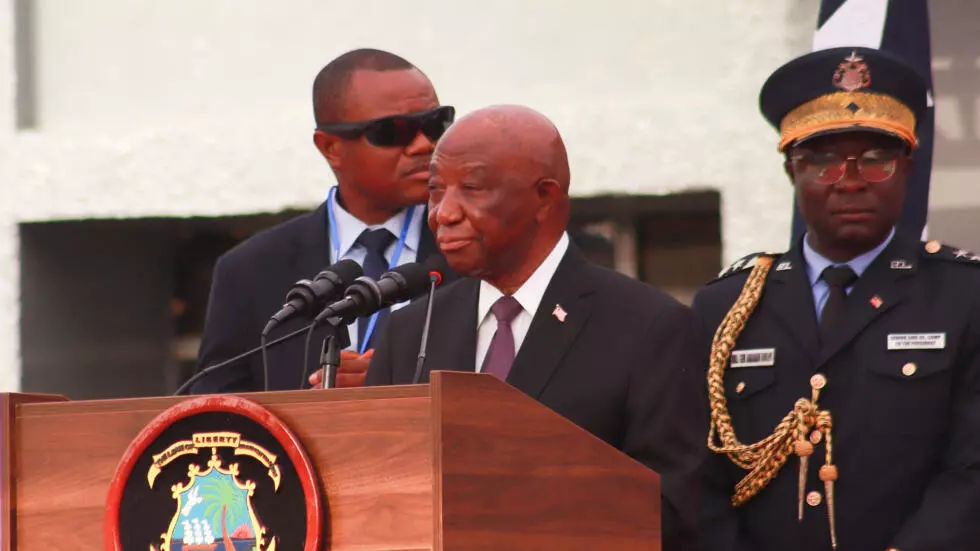Gambiaj.com – (MONROVIA, Liberia) – Barely six months into his presidency, Joseph Nyuma Boakai has taken decisive steps to fulfill his campaign promise of establishing a War and Economic Crimes Court (WECC) to hold those responsible for atrocities committed during Liberia’s civil wars accountable.
In August 2024, Boakai endorsed a majority legislative vote to set up the long-awaited tribunal, breaking from previous administrations that failed to act while key suspects passed away. The decision has been widely welcomed by the international community, including France, Switzerland, Finland, Sweden, and the United States—countries that have previously prosecuted Liberian war criminals. The United Nations has also pledged its support.
Diplomatic Push for Support
Since the legislative vote, Boakai and Liberia’s Minister of Foreign Affairs, Sara Beysolow Nyanti, have been engaging in global diplomatic efforts to secure financial and logistical support for the court. The tribunal aims to prosecute those responsible for gross human rights violations during Liberia’s two civil wars (1989–2003), which claimed an estimated 250,000 lives and left countless victims with physical and psychological scars. The court will also address economic crimes, particularly the plundering of Liberia’s financial and mineral resources, including diamonds.
A former Liberian Ministry of Justice official, speaking anonymously, revealed that around 50 individuals—including some living abroad—are expected to stand trial.
Funding and Leadership Challenges
Although an official launch date for the court has yet to be announced, estimates suggest that establishing and operating the tribunal could require approximately $100 million. To facilitate the process, the Liberian government has set up a secretariat for the WECC and appointed Jarla Barbu, former Dean of the Arthur Grimes School of Law at the University of Liberia, as the court’s Executive Director.
Before Barbu’s appointment, human rights activists had criticized Boakai’s initial choice for the role, Lewis Brown, citing his alleged ties to the civil war. T. Dempster Brown, Chairman of Liberia’s Independent Human Rights Commission, accused Brown of having served as a key advisor to former warlord and president Charles Taylor, whose regime was notorious for war crimes and corruption. Following mounting pressure, Boakai rescinded Brown’s appointment and replaced him with Barbu, a decision welcomed by activists.
International Endorsement and UN Commitment
Last November, Sweden’s Permanent Representative to the UN and Chair of the UN Peacebuilding Fund, Nicola Clase, visited Liberia to discuss peacebuilding priorities and reaffirmed the UN’s commitment to supporting the WECC. Liberia’s Foreign Minister Nyanti emphasized the need for international assistance in transitional justice, youth empowerment, and social cohesion.
“We call on our international partners to stand with Liberia as we navigate this crucial phase in our nation’s history,” Nyanti stated. “Together, we can ensure that the sacrifices of our people lead to lasting peace and prosperity.”
Clase echoed this sentiment, commending Liberia’s progress and pledging continued UN support for the country’s reconciliation efforts.
Senator Prince Johnson’s Death and Lingering Impunity
The momentum toward justice comes as several high-profile figures implicated in Liberia’s civil wars have either died or are aging. Shortly after Clase’s visit, Senator Prince Y. Johnson, a notorious former warlord and key figure in the capture and execution of former President Samuel Doe, passed away. Despite his past, Johnson was a signatory to the legislative vote establishing the WECC.
“I am not afraid of the War Crimes Court… Is it me you think you can intimidate?” he said defiantly before casting his vote.
In previous years, Johnson had threatened Liberia’s Truth and Reconciliation Commission (TRC), which had identified him as a key war crimes suspect. Similarly, former President Ellen Johnson Sirleaf dismissed the TRC’s attempt to impose a 25-year political ban on her due to her alleged role in fueling the war.
The TRC has described the resistance from figures like Johnson and Sirleaf as a “threat to peace and democracy,” reinforcing the perception that war victims continue to wait in vain for justice.
A Step Toward Justice and Reconciliation
With Liberia now pressing ahead with the WECC, many hope that the tribunal will not only serve as a deterrent to future crimes but also contribute to national reconciliation and stability. The road ahead remains challenging, especially in securing necessary funding and ensuring fair and transparent proceedings. However, with growing international backing and renewed political will, Liberia’s long-awaited reckoning with its past may finally be within reach.










